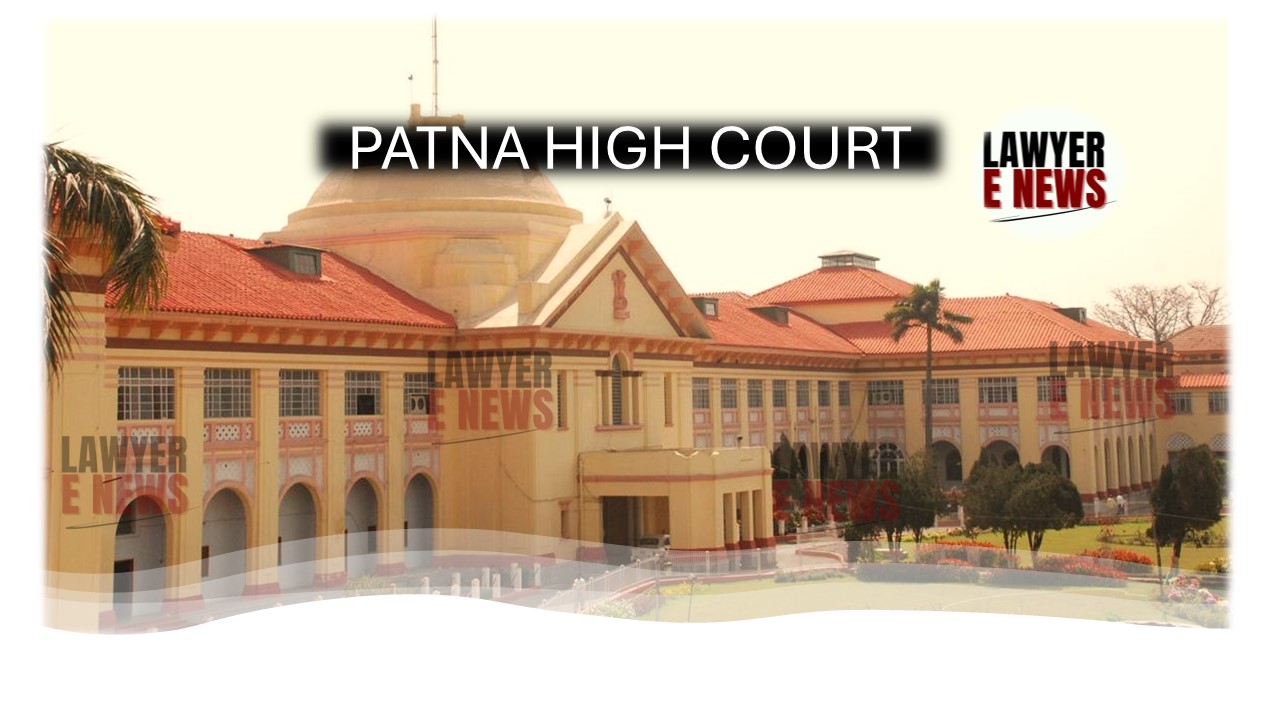-
by Admin
15 February 2026 5:35 AM



Delegation of Duties by Adhyaksh Not Necessary for No-Confidence Motion Against Up-Pramukh: High Court
The High Court of Patna has overturned an interim order that stayed a special meeting to consider a no-confidence motion against the Up-Pramukh of a Panchayat. In a significant ruling, the court affirmed that the delegation of duties by the Adhyaksh to the Up-Pramukh is not a prerequisite for initiating a no-confidence motion under the Bihar Panchayat Raj Act, 2006.
The appeal, identified as Letters Patent Appeal No. 638 of 2024, arose from an interim order in Civil Writ Jurisdiction Case No. 2845 of 2024, which had stayed a special meeting convened on February 15, 2024. The Up-Pramukh challenged the convening of this special meeting to consider a no-confidence motion, arguing that no valid grounds for such a motion existed.
Credibility of Grounds for No-Confidence Motion:
The court addressed the appellant’s contention that the Up-Pramukh had not been entrusted with the Adhyaksh’s duties and, therefore, a no-confidence motion was unwarranted. The court, however, clarified that under Sections 70(4)(i) and 70(4)(ii) of the Bihar Panchayat Raj Act, 2006, the motion against the Up-Pramukh does not hinge on any delegation of duties.
The court emphasized the statutory requirement for special meetings to consider such motions, regardless of the Up-Pramukh’s duties. “The no-confidence motion must be considered in a special meeting convened for the said purpose, even if it is against the Up-Pramukh,” the court stated.
The court distinguished the present case from the Sindhu Devi and Others v. State of Bihar and Others (2002) 1 PLJR 281 decision, which involved the Bihar Panchayat Raj Act, 1993. The older Act required reasons for a no-confidence motion to be stated explicitly, whereas the current Act mandates specifying reasons in the notice but does not allow the court to assess the validity of these reasons. “It is for the Zila Parishad, the elected members of the Panchayat, to consider the grounds on which the no-confidence motion has been moved,” the court noted.
The court’s judgment underscored the autonomy of Panchayat members in evaluating the grounds for a no-confidence motion. It held that judicial intervention in assessing the validity of these grounds would infringe on the legislative intent and the Panchayat’s democratic processes. The court also ruled that approaching the High Court for a remedy is not a valid ground for a no-confidence motion.
Honourable Chief Justice Vinod Chandran remarked, “No-confidence motion against the Up-Pramukh, as permitted by Section 70(4)(i), does not depend upon any delegation of powers or duties by the Adhyaksh to the Up-Pramukh or the assumption of charge of the Adhyaksh by the Up-Pramukh.”
Conclusion: By setting aside the interim order and directing the special meeting to proceed on July 29, 2024, the High Court of Patna has reinforced the statutory provisions governing no-confidence motions within Panchayats. This ruling affirms the role of Panchayat members in determining the leadership of their local governance bodies without undue judicial interference. The Up-Pramukh has been prohibited from performing any functions until the special meeting determines the outcome of the no-confidence motion.
Date of Decision: July 19, 2024
Dhirendra Mishra @ Dheerendra Mishra & Swatantra Kumar Jha vs. The State of Bihar and Others
